
OpenGL is a cross-language, cross-platform application programming interface (API) for rendering 2D and 3D vector graphics. The API is typically used to interact with a graphics processing unit (GPU), to achieve hardware-accelerated rendering.
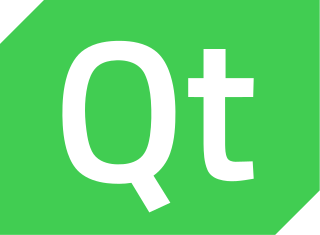
Qt is a widget toolkit for creating graphical user interfaces as well as cross-platform applications that run on various software and hardware platforms such as Linux, Windows, macOS, Android or embedded systems with little or no change in the underlying codebase while still being a native application with native capabilities and speed.

Lego Mindstorms is a hardware and software structure which is produced by Lego for the development of programmable robots based on Lego building blocks. Each version of the system includes a computer Lego brick that controls the system, a set of modular sensors and motors, and Lego parts from the Technic line to create the mechanical systems.

MontaVista Software is a company that develops embedded Linux system software, development tools, and related software. Its products are made for other corporations developing embedded systems such as automotive electronics, communications equipment, mobile phones, and other electronic devices and infrastructure.
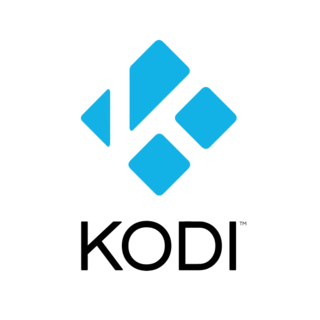
Kodi is a free and open-source media player software application developed by the XBMC Foundation, a non-profit technology consortium. Kodi is available for multiple operating systems and hardware platforms, with a software 10-foot user interface for use with televisions and remote controls. It allows users to play and view most streaming media, such as videos, music, podcasts, and videos from the Internet, as well as all common digital media files from local and network storage media.
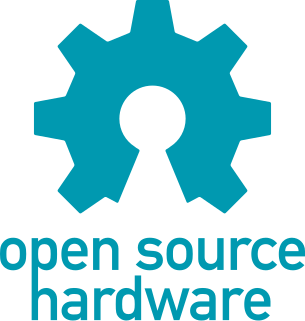
Open-source hardware (OSH) consists of physical artifacts of technology designed and offered by the open-design movement. Both free and open-source software (FOSS) and open-source hardware are created by this open-source culture movement and apply a like concept to a variety of components. It is sometimes, thus, referred to as FOSH. The term usually means that information about the hardware is easily discerned so that others can make it – coupling it closely to the maker movement. Hardware design, in addition to the software that drives the hardware, are all released under free/libre terms. The original sharer gains feedback and potentially improvements on the design from the FOSH community. There is now significant evidence that such sharing can drive a high return on investment for the scientific community.

Arduino is an open-source hardware and software company, project, and user community that designs and manufactures single-board microcontrollers and microcontroller kits for building digital devices. Its hardware products are licensed under a CC BY-SA license, while software is licensed under the GNU Lesser General Public License (LGPL) or the GNU General Public License (GPL), permitting the manufacture of Arduino boards and software distribution by anyone. Arduino boards are available commercially from the official website or through authorized distributors.
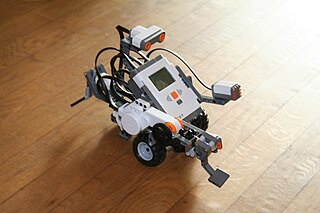
Lego Mindstorms NXT is a programmable robotics kit released by Lego in late July 2006. It replaced the first-generation Lego Mindstorms kit, which was called the Robotics Invention System. The base kit ships in two versions: the Retail Version and the Education Base Set. It comes with the NXT-G programming software, or optionally LabVIEW for Lego Mindstorms. A variety of unofficial languages exist, such as NXC, NBC, leJOS NXJ, and RobotC. The second generation of the set, the Lego Mindstorms NXT 2.0, was released on August 1, 2009, featuring a color sensor and other upgraded capabilities. The third generation, the EV3, was released in September 2013.

The Player Project is a project to create free software for research into robotics and sensor systems. Its components include the Player network server and the Stage robot platform simulators. Although accurate statistics are hard to obtain, Player is one of the most popular open-source robot interfaces in research and post-secondary education. Most of the major intelligent robotics journals and conferences regularly publish papers featuring real and simulated robot experiments using Player and Stage.

Nao is an autonomous, programmable humanoid robot developed by Aldebaran Robotics, a French robotics company headquartered in Paris, which was acquired by SoftBank Group in 2015 and rebranded as SoftBank Robotics. The robot's development began with the launch of Project Nao in 2004. On 15 August 2007, Nao replaced Sony's robot dog Aibo as the robot used in the RoboCup Standard Platform League (SPL), an international robot soccer competition. The Nao was used in RoboCup 2008 and 2009, and the NaoV3R was chosen as the platform for the SPL at RoboCup 2010.

Robot Operating System is an open-source robotics middleware suite. Although ROS is not an operating system (OS) but a set of software frameworks for robot software development, it provides services designed for a heterogeneous computer cluster such as hardware abstraction, low-level device control, implementation of commonly used functionality, message-passing between processes, and package management. Running sets of ROS-based processes are represented in a graph architecture where processing takes place in nodes that may receive, post, and multiplex sensor data, control, state, planning, actuator, and other messages. Despite the importance of reactivity and low latency in robot control, ROS is not a real-time operating system (RTOS). However, it is possible to integrate ROS with real-time code. The lack of support for real-time systems has been addressed in the creation of ROS 2, a major revision of the ROS API which will take advantage of modern libraries and technologies for core ROS functions and add support for real-time code and embedded system hardware.
Robotics middleware is middleware to be used in complex robot control software systems.

Willow Garage was a robotics research lab and technology incubator devoted to developing hardware and open source software for personal robotics applications. The company was most likely best known for its open source software suite ROS, which has been rapidly and widely becoming a common, standard tool among robotics researchers and industry, since its initial release in 2010. It was started in late 2006 by Scott Hassan, who had worked with Larry Page and Sergey Brin to develop the technology that became the Google Search engine. Steve Cousins was the president and CEO. Willow Garage was located in Menlo Park, California.

PrimeSense was an Israeli 3D sensing company based in Tel Aviv. PrimeSense had offices in Israel, North America, Japan, Singapore, Korea, China and Taiwan. PrimeSense was bought by Apple Inc. for $360 million on November 24, 2013.
LinuxCNC is a free, open-source Linux software system that implements numerical control capability using general purpose computers to control CNC machines. Designed by various volunteer developers at linuxcnc.org, it is typically bundled as an ISO file with a modified version of 32-bit Ubuntu Linux which provides the required real-time kernel.
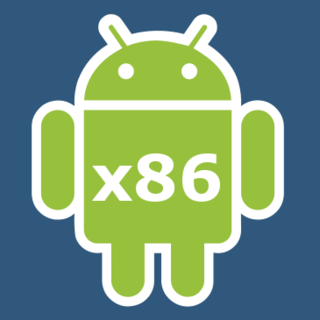
Android-x86 is an open source project that makes an unofficial porting of the Android mobile operating system developed by the Open Handset Alliance to run on devices powered by x86 processors, rather than RISC-based ARM chips.
ArduPilot is an open source, unmanned vehicle Autopilot Software Suite, capable of controlling autonomous:
AirSim is an open-source, cross platform simulator for drones, ground vehicles such as cars and various other objects, built on Epic Games’ proprietary Unreal Engine 4 as a platform for AI research. It is developed by Microsoft and can be used to experiment with deep learning, computer vision and reinforcement learning algorithms for autonomous vehicles. This allows testing of autonomous solutions without worrying about real-world damage.













